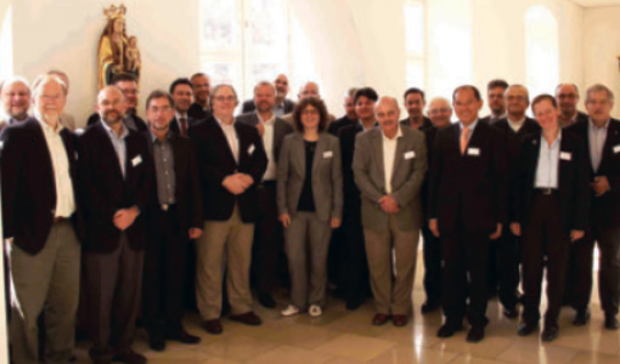In his recent encyclical, Caritas in veritate, Pope Benedict XVI explains that for business, “[p]rofit is useful if it serves as a means towards an end that provides a sense both of how to produce it and how to make good use of it. Once profit becomes the exclusive goal, if it is produced by improper means and without the common good as its ultimate end, it risks destroying wealth and creating poverty.” A principal message for Benedict, as well as for the whole of the Catholic social tradition, is that, to use profit and products well, we need leaders of virtue, especially the virtue of practical wisdom.
Practically wise leaders will not result from simply obeying laws or contracts, nor will they be produced from incentives in the marketplace. Virtuous leaders will come from a culture that is rooted in a strong religious vision nurtured in the family, the Church and the school.
This message of virtue was the principal focus at a seminar, “The Business of Practical Wisdom,” which was co-organized by the John A. Ryan Institute for Catholic Social Thought of the Center for Catholic Studies and the SAIP Institute in the Opus College of Business, the Angelicum in Rome and the Catholic University of Eichstätt, Germany. Held in Germany Sept. 24-26, the seminar was attended by an interdisciplinary group of scholars in the fields of theology, management, economics, philosophy and law, and of practitioners in the areas of health care, industry and education.
Both scholars and practitioners at the seminar pointed out that if business is not practical and profitable it won’t be in business for long. But if it is only practical, it loses its meaning. Within the Catholic social tradition, the good company is premised on practically wise leaders who have the ability to discern effective means for attaining the firm’s morally good ends in light of particular and unique circumstances.
The scholars and practitioners met to deepen their understanding of this relationship among practical wisdom, virtue and business, since it is underdeveloped in current scholarship within the fields of the Catholic social tradition, business ethics and economics. Their purpose was to contribute to the Catholic social tradition by generating scholarship on the habit of mind that helps businesspeople to know how the ideas of Catholic social thought can be put into practice.
The papers can be accessed for a short period of time on the John A. Ryan Institute Web site: www.stthomas.edu/cathstudies/cst/conferences/PracticalWisdom/default.html. Michael Naughton, Andre Habisch and Gilbert Lenssen will be editing the papers in a forthcoming special issue of the Journal of Management Development.







